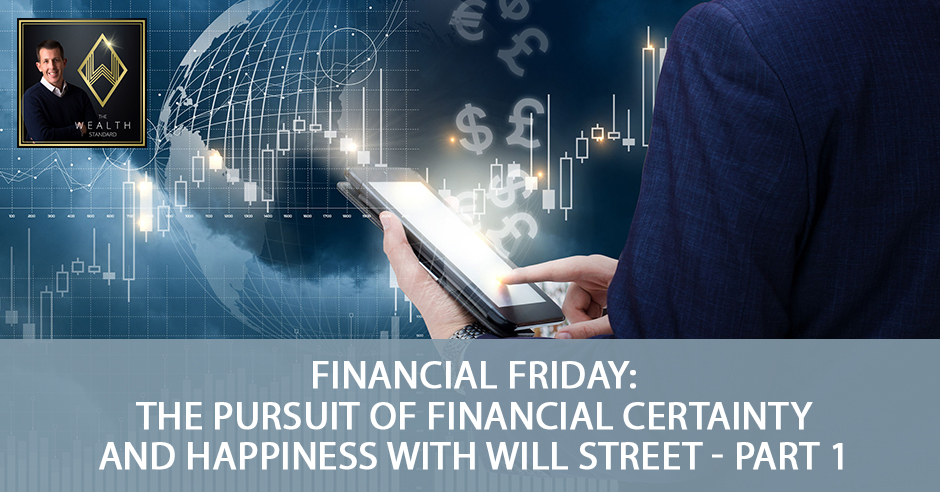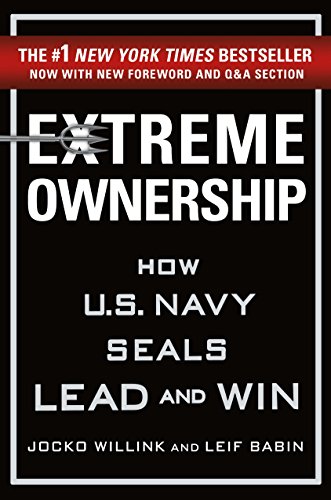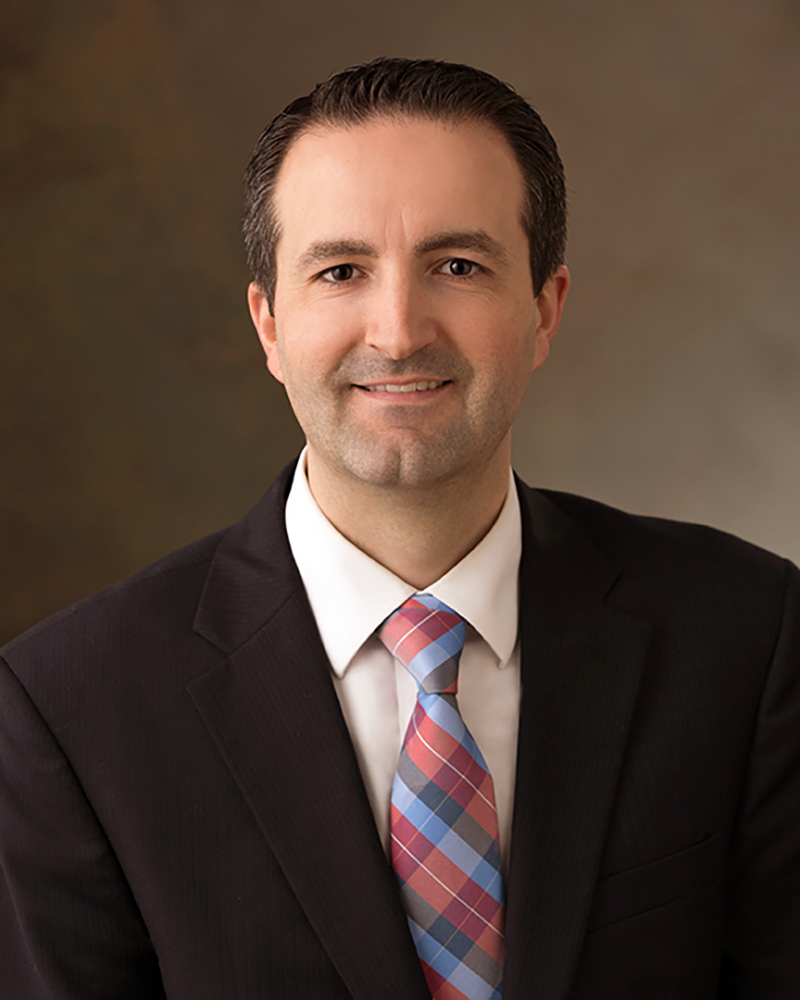Podcast: Play in new window | Download

Everyone wants financial freedom, but not everyone is willing take responsibility to create one for themselves. Wealth strategist Will Street enlightens everyone on the importance of taking ownership of your finances. We can never be certain of the risk, but not taking the risk will not get you anywhere near financial certainty. Will shares stories of risks taken by investors and what we can learn from it. Failure is inevitable, but what makes a difference is rising up, learning from these failures, and having the will to continue the pursuit of financial certainty and happiness.
—
Watch the episode here:
Listen to the podcast here:
The Pursuit Of Financial Certainty And Happiness with Will Street – Part 1
Financial Friday
I’m here with my good pal, Will Street. How are you doing, Will?
I’m good. It’s been a while since I’ve been on a podcast.
It’s going to be a fun one because we’re going to talk about the context of some of the guests we’ve had on so far for Financial Friday. We’re going to review an article probably as a part two that is going to help us prove or hits home some of these points. I look at finance and I look at it from probably a different perspective than most and I think you’re starting to grasp that. You had the legal background and practiced in the financial sector as an attorney, which gave you a perspective and then being here for a few years now. You’ve worked with a lot of individuals personally, but you’ve also heard things about the situations of people when it comes to finances. It’s helped you fine-tune perspective when it comes to what financial success is and what it isn’t. Talk to that briefly. What have you seen as the reasoning behind what creates success for people financially? What gets them into trouble, gets them to make bad investment decisions or financial decisions?

Extreme Ownership: How US Navy SEALs Lead and Win
I finished reading the book, Extreme Ownership by Jocko Willink. I’ve read/listened to it. I had it and then I listened to the Audible version driving into work. The whole premise behind Extreme Ownership is you own everything. If there’s something within your sphere of influence, as a leader, he’s talking about it from the Navy SEALs perspective. You don’t cast blame on other people, you own it.
It’s your responsibility, your stewardship.
If something isn’t going right, don’t point fingers at somebody else. Look at what you could have done better to improve the outcome. To go back to your question, many people nowadays are passive when it comes to what they do financially. They assume that somebody else, whether it’s the government or Wall Street or businesses or whoever has their best interest at heart.
They’re competent to give them the advice that they should trust.
Things didn’t go well. Immediately, they look outward to try and cast blame on somebody else. My philosophy that has evolved over time is this idea that if I want to get somewhere financially or if a client wants to get somewhere financially, it’s got to start with us. It’s got to start with what we know, with what we understand, with what our objectives are and putting together a game plan to get there. It’s no one’s responsibility more than it is our own. That’s something that I didn’t understand the notion of Extreme Ownership in the beginning, but as people get into trouble it has to do with not taking an active role in what they do financially. Making assumptions that things will fall into place a certain way, that somebody else is looking out for their best interest and them not doing nearly what they need to do to take ownership of their own.
You’ve got to realize that all human beings, number one, we’re fallible. We all have opinion and we all have a perspective. Opinion and perspective can go hand-in-hand. Individuals tend to delegate responsibility to others, especially when it comes to things that they don’t understand. It’s easy. That’s the easy button. If they’re competent, they have experience and you don’t have to go through the trouble of learning everything, it makes common sense. That’s where most people get in trouble. What do you do? If you don’t have all the time in the world to study every single financial decision that you make, what’s the route that you take?
On this show, we’ve had individuals that represent a commodity type of investment. We’ve had Gene Guarino, who I’ve known for a long time. He has a new fund and investment in a cool niche part of the real estate industry. We’ve also had note investing guys in here. If you go to the Cash Flow Wealth Summit, the first presentation of Financial Fridays was my presentation at the Cash Flow Wealth Summit, which hits on a lot of this. We have the Hierarchy of Wealth, which helps to categorize where investments are. A lot of the categorization has to do with what you understand or the degree of certainty and control you have over whatever the financial decision is, whatever the asset is. In the Cash Flow Wealth Summit, we’ve had every type of real estate investing you can think of. We’ve had FlipNerd on and Mike Hambright on there. We’ve had Mobile Home. Andrew Lanoie was on as well for Financial Fridays.
These are all sorts of investment ideas, their perspectives, the little niches that people have and they’re presenting opportunities. You and I both know that there are a lot of opportunities out there that don’t end up the way that they were intended. That’s where I’ve tried to hit on this notion of instead of asking about the details or features and benefits of the actual underlying investment, it’s also to start to look into the business itself. The operations, the people involved because that’s where it starts to fall apart. There are some other things that you can do. That’s how I look at finances. I never try to discount anything.
When somebody claims or somebody says their perspective, I don’t say, “You’re right and I trust you,” I say, “That’s an interesting perspective and that’s valuable to me regardless of what the perspective is.” I start to ask some questions about it and verify if it’s a valid piece of advice if it’s a valid claim or not. That’s where we’ve used the three sides of the coin where you have heads, tails and the edge. Heads are one opinion, tails are the other opinion and then the edge is where you sit to make the most informed decision. As you’ve looked at investment opportunities and made financial decisions for yourself, what are some of the things that you do consistently that helps you make an informed decision?
You don't cast blame on other people, you own it. Share on XThe image that I have in mind is the Cash Flow Wealth Summit is this financial buffet of all different options and different strategies, tools, experts, companies and things like that. What a lot of people tend to do when it comes to their finances is they’ve got their tray and they take a little scoop of this, they take a little scoop of that. Then they get back to their table and then start to dig into it, but there’s no rhyme or reason to it. There’s no forethought given to what they’re going to do and how these various elements might interact with each other. It goes back to your point about everyone has a perspective. Everyone has some background, some knowledge and some familiarity with something. Everybody has somewhere to start. What I try to do is recognize that, “I don’t know everything, but I do know something. I know what my risk tolerance is. I know where my interests are.
I know generally where my goals and objectives are. I can start to put together a strategy that will start to point me in that direction as opposed to taking a little bit of this, taking a little bit of that, throwing it against the wall and hoping that something sticks.” Instead of taking that buffet approach, doing some analysis of, “What do I know? What am I drawn to? What am I interested in? Do I have any prior knowledge or experience or expertise with certain assets or asset classes or companies and starting to build from there?” I love the hierarchy because it does give us our blueprint for how to build our financial game plan. If we don’t have tier one established, if we don’t have the foundation securely in place, we’ve got no business jumping to the tip-top of the hierarchy. You’ve got to start it and you’ve got to continue it in the proper sequence.
Here’s how I look at it. It’s made me think about the idea and principle of certainty. It’s like human beings have this drive toward both certainty and uncertainty. Uncertainty is variety. It’s doing new things. It’s experiencing going on a roller coaster. We have this internal drive to do that. Sometimes, choosing from the buffet of financial options, it appeals sometimes to that internal drive. That’s why we’ve developed the Hierarchy of Wealth is because the foundation is certainty. That’s where we have certain characteristics and criteria. We teach the wealth maximization account and we use that for the characteristics that it has. Above that is when the degree of uncertainty sets in. There are three tiers above that. There’s tier two, tier three and tier four. In each level up, the degree of uncertainty increases. The idea is once your foundation is set, now it can properly balance the pursuit of this uncertainty, there’s a variety of different things that you may do. Let’s talk about tier two and tier three and some of the characteristics there. I’m going to use some examples as far as some bad decisions that I’ve made and also some bad decisions that I know clients have made, actual experiences. How do you look at tier two?
If I’m walking through the hierarchy with clients, which I do. The way that I explain it is where each layer, each tier that we’re building on top of the previous, there’s a little bit more risk or a little bit less control or a little bit less certainty with the previous. We don’t have a license to take on a bunch of uncertainty and give up a bunch of control if we don’t have the most secure, the most control and the least amount of risk established. For me, that’s that bottom layer. As we’re stepping into tier two and maybe it’s a little bit less certain, a little bit riskier and a little bit less control, I’m going to look at assets like real estate. Real estate’s a broad category in and of itself. For me, what I define as a good solid tier two asset would be the good buy and hold, three-bed, two-bath rental property. Going back to my own experience and my own expertise, my wife would tell you I have basically zero construction knowledge, expertise and ability. I’ll mess up an Ikea piece of furniture. That’s how bad I am.
In other words, I’ve got no business in a flip because I have no idea what needs to be done. I don’t know if it’s being done correctly. No clue, no concept. That is outside of my area of expertise, I understand buying a property. I understand what metrics to look at when it comes to rent relative to purchase price and some of those things. A good solid tangible asset like a piece of real estate or rental property is a fantastic tier two asset for me, or for somebody else, it might be starting a business. It’s something that you have control over. It’s something that you can impact. You’re not surrendering control to somebody else. You’re not leaving it up to chance. When you wake up in the morning, you’re not looking at the ticker and finding that, “The market is in the toilet now,” and you had no control. That’s not a tier two asset. We’re looking at something that might be a little bit less control, a little bit less certain and a little bit more risk than that bottom layer. We want to be careful about how much additional risk we’re taking on or how much uncertainty we’re moving into. At least that’s my philosophy.

Financial Certainty: A good solid tangible asset like a piece of real estate or rental property is a fantastic tier two asset. It’s something that you have control over.
I’m going to deviate. This comes to some stuff I’ve been thinking about. I don’t want to get into failures and some bad decisions that I’ve made and clients have made. I look at some of the events that occurred in the last couple of years. You had Robin Williams commit suicide. You had Kate Spade and Anthony Bourdain. There are others as well. The thoughts that I’ve had is here you have individuals, you have human beings who achieved what some people are after. People are after what they consider financial independence, financial freedom and to be at a certain level. To be successful here, to be successful there, to have a lot of money here and a lot of money there. I would argue that that’s financial freedom that might not be freedom. Tier two for me is a lot of investment in yourself. I look at where people are at and a lot of what they want to become independent from or free from. It’s something that they don’t like to do, but that doesn’t mean that you shouldn’t do.
I’ve joined an inner circle of Tony Robbins, which is called Platinum Partnership. I’ve been listening to a lot of his material. There’s something that hit me and he said, “For a fulfilling life, you have to spend between 50% and 60% doing meaningful things.” It’s the discovery that I don’t think most people ever venture to do. Meaningful things are something that drives you, something you’re inspired by, something that you know makes a difference and aligns with who you are, your talents, your abilities, your strengths. The discovery of that is part of tier two because one of the things is potentially starting a business. Retirement is an idea of escaping something. You stopped doing what you don’t like doing, but it doesn’t mean you shouldn’t do because a part of you dies when you’re not contributing. I look at the meaningful things that people do and what drives them and why they thrive. It’s not because they make a lot of money but because there’s another interest in it besides that.
Tier two is where you can take assessments. You can take StrengthsFinder 2.0. You can take Kolbe, DISC and Myers-Briggs. There are a number of them out there. The idea is to understand more about you. It’s also to dig deep and start to pay attention and put some glasses on where you can see the world and the things that you enjoy doing, the things that make a difference. It’s starting to pursue a business that revolves around that. If you look at tier two, some of the criteria are things that you have more control over, but still have an element of uncertainty. Real estate has that, but at the same time, there’s still a degree of control that you have especially with how you determine markets. How you determine rents and values. How you determine down payments. How you determine mortgage payments versus rents. It’s one of those things where it doesn’t take a rocket scientist to have a good piece of real estate. It’s somewhat passive.
You look at other investments to make. There’s an article that I wrote a few years ago and I mentioned the idea in the book, which is how to get a 10% raise for life. Most people get a 3% raise. If you look at a 30-year career, someone that makes $100,000 will earn shy of $5 million total earnings with a 3% increase yearly. If you make a 10% increase yearly, the earnings are almost $17 million. It’s a huge difference, a little over $11 million. What’s the difference between someone that gets a 3% raise and someone that gets a 10% raise? 3% raise is because of the cost of living. It’s standard. If you look at 10%, it’s because somebody has figured out a way to create more value in either that capacity or another capacity. They get a certification. They learn management. They learn leadership. They learn how to do marketing. They learn things that create more value for an employer or for customers. That’s the idea. That opportunity is available to everyone. It’s where you have the most control when it comes to taking risks or delving into the realm of uncertainty.
It’s one of those things where all of us can think about times where we’ve done something meaningful. Maybe it’s giving to a charitable organization or serving in some way. The feeling of invigoration that comes from that, it makes you fire on all cylinders. If you can start to make that a part of what you do as a matter of practice, how much more driven are you going to be to get out of bed in the morning to work harder, to be better, to produce more. Think about somebody who’s stuck in a job that they don’t enjoy and how deflating that is and demotivating and difficult life can be and unhappy. Flip that completely 180 degrees the opposite and you start to invest in yourself and to fuel what drives you. That’s huge.
Let’s talk about some failures. We’re hitting on things that we’ve hit on before. It’s going into the context of what’s the purpose of being financially successful? What’s the end result to escape or to support or help to buffer doing the most meaningful things according to what makes the biggest difference in your life and in other people’s lives? The failure side of things, I look at all the decisions you make. You want to have trustworthy people in your life, but at the same time you have to look back and say, “Everyone has fallibility.” They make mistakes. They make bad calls. Rarely is an investment opportunity going to tell you not to invest with them. You have to look at that and that essentially gives you the area in which you can ask questions. You can dig a little bit deeper. You can verify. You can check and use your financial education to make a decision. Oftentimes, that comes as the result of not doing it. You can say, “That guy sounds like a credible guy. I’ll write him a check.” These are mistakes that I made a number of years ago. This was probably 2004, 2005.
I remember I was invited to this person’s house. In Utah, there are two things that happen at people’s houses. The first thing is it’s like MLM or network marketing company. They try to have you sell the vitamins or the juices or whatever, or it’s some investment or business. I’ve been to both. I didn’t grow up here, but I learned whenever you get that call, “I have this business I did. You’re a business guy. I think you should come and attend.” It’s one of those two things. This was an investment one. The investment opportunity was a fish farm and they had this proprietary way to breed fish. It sounded cool and the name of the company that did it was Winsome. That should have been a sign. It was a $20,000 investment and I never saw anything from it. It was a group of people that was in Sandy. It was about 30 minutes away. It’s an investment that went bad. The actual fish farm existed, it’s just that they had nobody to sell the fish to.
Individuals tend to delegate responsibility to others, especially when it comes to things that they don't understand. Share on XWhat was cool was this guy went to prison. This was a few years after this occurred. It was right during the time where I had tons of different failure business-wise. I was called into an FBI office. There’s a building here in Salt Lake and in the building, there are three floors of FBI. I went in there and there were no signs or whatever. I go into a huge boardroom and there are people everywhere, plus there were people on conference calls. There’s this horseshoe thing and I come in. They asked me questions like, “How did you hear about this guy? What happened? How much did you invest? What type of communication did you receive from him?” It was an interesting experience. I learned more about what this guy did. It wasn’t just people in Utah. There were a bunch of other states.
It’s one of those things where every single person that gave this guy money and it was millions of dollars. It was done by trusting that he knew what he was doing. Nobody asked questions about, “Who are your customers? Do you have contracts? Can I see those contracts? Let me see the business plan. Who else is on your team? Who’s doing the marketing? Who’s doing the operations? You’re in Texas so who’s running the thing in Puerto Rico?” It’s one of those things where nobody was asking those questions. All the questions were, “What’s the rate of return? When am I going to get my money? Do I get it monthly? Do I get it quarterly? How much is it? Could I get more?” All had to do with the financial details, not the principles, the values and the operations. That was one of the more crazy investments that I heard of.
I’ll give one that will make everybody laugh. This was in 2018. We started getting lots of people who were interested in cryptocurrency. You’re talking to them and explaining the Hierarchy of Wealth and how to position assets. People started to tell us that they were refinancing their homes and cashing out everything and putting their money in Bitcoin. This was when Bitcoin was probably $18,000, $19,000. They were convinced that Bitcoin was going to $100,000 and that was going to be the key to their retirement. This is an example that sounds ridiculous, but it was happening a lot. It was a number of instances. There’s another one too, which is the Iraqi Dinar. This was probably a few years ago when we started to get these types of calls where people were like, “I’m coming into this large sum of money, which is to the tune of potentially $500 million. I need a place to put that.” I’m not going to get into the details of that, there’s plenty of information online. Individuals, the uncertainty that they’re in pursuit of is natural. It’s not like people wake up one morning and like, “I’m going to go pursue uncertainty.” It’s one of those natural drives that compel us to want variety. We realize that, but at the same time once you realize it you have to position things so that you don’t let that get in the way for making good decisions.

Financial Certainty: You want to have trustworthy people in your life, but at the same time you have to look back and say, “Everyone has fallibility.”
I would say there are a number of people I talked to that have lost money, lost investments and they value what we do a lot more than those that haven’t lost money, but at the same time, I look at that as a powerful tuition. It’s an investment and it’s an investment in your future. I got off the phone with a guy. He was a dentist. He was successful and made bad decisions. It costs him $500,000. He was like, “I want to make up for lost time.” I was like, “You didn’t lose time.” You gained time if you think about it because you learned some valuable lessons that are going to be essential as you expand your practice and as you raise your family and as you determine what your future looks like. You’re going to have so many financial decisions throughout your life, whether it’s purchase decisions, whether it’s investment decisions or whether it’s what you do with your career.
We advocate that having a foundation of certainty, which consists of financial education as well as certain assets and structure that allows you to buffer the uncertain decisions that you make. That’s where you start. It’s also to understand the values and the principles that underlie all of these decisions. Sometimes that’s the discovery of your strengths, your purpose, your mission, your calling and the pursuit of that meaningful work. We are going to be reviewing an article of a woman who studied 600 millionaires and she discovered where you choose to live has two effects on your ability to build wealth. We’re going to talk about that. We’re going to take the contrarian. Her opinion’s heads, this is tails. Stick with us until the next episode for the second segment of Financial Friday with Will Street. Thanks. We’ll see you in the next episode.
Important Links:
- Will Street
- Extreme Ownership
- Extreme Ownership in Audible
- Gene Guarino – past episode
- Cash Flow Wealth Summit
- Platinum Partnership
- www.ParadigmLife.net
- https://ParadigmLife.net/about/will-street/
- https://www.LinkedIn.com/in/william-street-jd-21a4b213/
About Will Street

Will earned his Bachelor of Arts degree from Brigham Young University in 2005. After graduating from BYU, Will attended the University of Iowa College of Law and received his Juris Doctor in May of 2008. Will began practicing law with the law firm of VanCott, Bagley, Cornwall & McCarthy the oldest and one of the most well-respected law firms in the State of Utah. Will’s practice focused primarily on consumer finance-related litigation, consumer finance transactions, sale and purchase agreements, NDA’s, RFP’s, teaming agreements, security agreements, creditor’s rights in bankruptcy, and estate planning. Working directly with clients to analyze a problem, develop a solution, and working to ensure a successful resolution are what Will enjoyed most about being an attorney. Will comes to Paradigm after nearly six years in the private practice of law.
After his exposure to the Infinite Banking concept and seeing that his legal training would be directly relevant to his role at Paradigm, Will made the decision to leave his practice. Paradigm allows Will to continue to do what he enjoys most – develop client relationships, dissect problems, create solutions and work collaboratively with the client towards a successful resolution. Originally from the Tri-Cities area of Eastern Washington, Will currently resides in Salt Lake City with his wife, Sunny, and their three children.
















